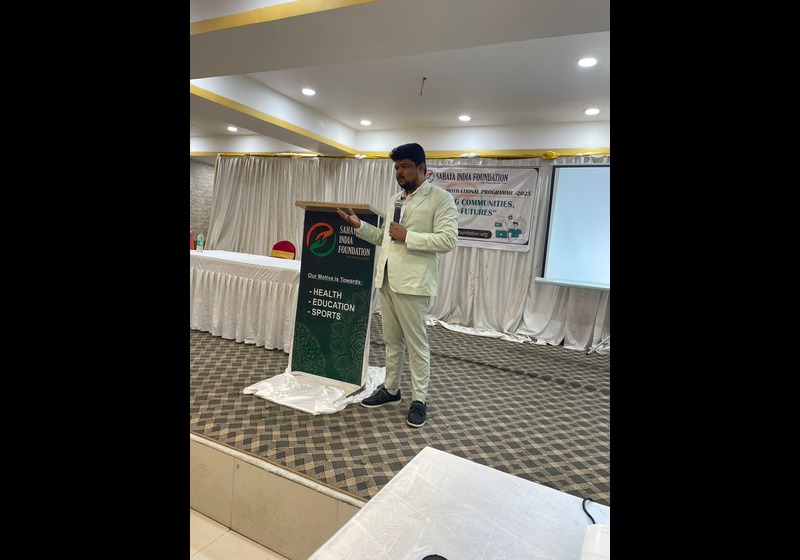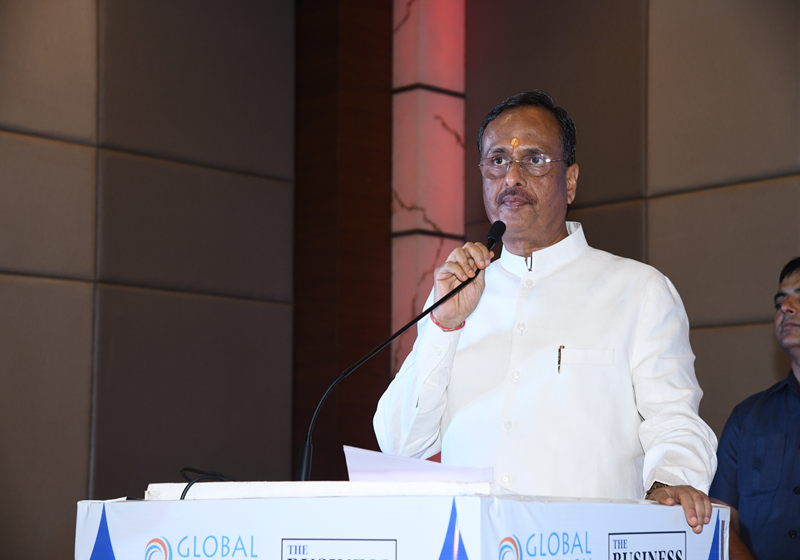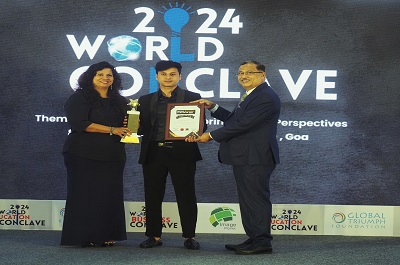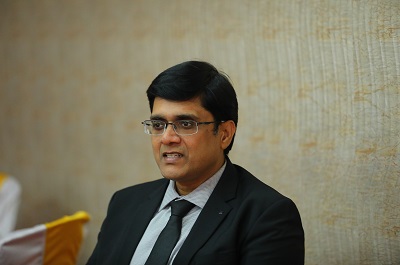“The rise of entrepreneurial campuses, mentorship, and innovative policies is fostering a
new era of confident, talented, and innovative female founders ready to drive India's
innovation economy.”
The Indian higher education landscape is transforming beyond the traditional chalkboards and
lecturing. It is now becoming an entrepreneurial force, particularly among women of Gen Z.
These young entrepreneurs are rewriting India's entrepreneurial story, not just as bystanders
but as confident leaders, with many choosing directly to entrepreneurship upon graduation.
How has this revolution been made possible? A growing mix of academic innovation,
institutional support, and a country-wide focus on inclusion is facilitating young women to
fulfil their aspirations.
As the Indian entrepreneurial ecosystem rapidly rising, women make up about 14% of
entrepreneurs; the figure is also slowly rising. Education is at the forefront of this increase. The
2020 National Education Policy (NEP) has made major emphasis on nurturing
entrepreneurship through learning processes, experiential learning, and the cultivation of
practical skills. Educational institutions have responded by incorporating entrepreneurship into
their culture, going beyond business schools to other areas of study.
"Our vision is education that actively cultivates leadership, where mentorship isn't optional
but the cornerstone of learning."
Universities across the nation are participating in collaborative initiatives with startup
incubators, government schemes, and private foundations for empowering women
entrepreneurs. For instance, the NSRCEL incubator of the Indian Institute of Management
Bangalore offers the Goldman Sachs 10,000 Women program, which offers promising women
access to formal education, mentorship, and business networks. Similarly, the Indian Institute
of Technology Delhi enables the Women Entrepreneurship and Empowerment (WEE)
Foundation, where chosen female-led startups are offered incubation support with the help of
NITI Aayog and the Department of Science & Technology. These efforts are not symbolic,
since they have been able to empower women to set up high-technology, scalable enterprises
across domains ranging from artificial intelligence to social impact technology.
At the grassroots level, government initiatives such as Stand-Up India, Start-Up India, and
Swavalambini are bringing entrepreneurship within the reach of women in college.
Swavalambini, for instance, targets taking entrepreneurship modules to colleges in India's
Northeast, followed by formal mentorship for six months. These programs ensure young
women don't merely dream they do. They pitch, they build, and increasingly, they scale.
One of the main drivers of this progress is the development of institutional mentorship.
Students are paired with experienced mentors, such as faculty, industry professionals, and
successful alumni, who provide frequent advice in institutions of higher education. The
mentorship occurs across numerous stages, from ideation to business strategy formulation,
market testing, and investor preparedness. Having incubators, startup communities, and
innovation labs on campus offers students a sheltered space where they can try out ideas, learn
rapidly from mistakes, and iterate according to data.
At Universities, IIMs, and top Business Schools like Alliances School of Business (Alliance
University), JEGSOM, MESA School of Business, Master's Union, etc, entrepreneurship is not
an option, it's in the genetic code of learning. Through regular startup showcases, leadership
labs, ideation workshops, and industry talks, students, especially young women, are
encouraged to take charge of their careers by building enterprises. Academic mentors work
hand-in-hand with visiting entrepreneurs, ensuring students are guided by theory and practice.
“We are not merely educating for employment. We are educating students, and especially
young women, to create employment.”
Systemic education and mentorship programs in India are revealing profound transformative
impacts for women entrepreneurs. For instance, the Goldman Sachs 10,000 Women program,
in partnership with the Indian School of Business, has yielded quantifiable impacts, graduates
reported a four-fold increase in revenues of their businesses and doubling of their teams within
18 months of graduation, generating over 12,000 new jobs in aggregate. This growth was
realized through access to business education, strategic mentorship, and capital. Similarly, NITI
Aayog's Women Entrepreneurship Platform (WEP) has emerged as a nationwide resource hub,
enabling thousands of women access to mentorship, capital, and training opportunities through
a single integrated portal. To date, as of the latest reports, WEP has put more than 26,500
women in touch with systemized entrepreneurship programs and has worked with the public
as well as private sectors to increase coverage. These programs illustrate the specific and
measurable impact of formal interventions on shaping the developmental pathways of women
owned businesses in India.
Today, India does not wait idly to transform but actively becomes a part of the process of
transformation. With determination, grit, and an unflinching resolve to lead, individuals are set
to break down barriers and take bold initiatives. Not approvals, but collaboration is what is
needed. When institutions of higher education respond to this desire by awarding not just
qualifications, but also advice, mentoring, and experiential learning, they release a force of
change. These women are not just emerging entrepreneurs; they are the architects of India's
developmental story. Every classroom that empowers them is an investment in a nation of
courage, innovation, and equality.
And in this new India, Schools are not only teaching dreams. They are launching them.
Fueling New India: How New-age Education Is Shaping Gen Z Women Founders
2025-05-23- 4
- 980
































